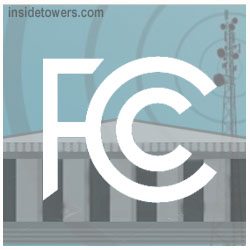Broadcast, satellite, utility and other users of the 6 GHz band say those activities must be protected, as the FCC considers opening up the band to shared use by unlicensed devices. Not doing so, risks harmful interference from unlicensed devices, commenters tell the Commission. Filings to Docket 18-295 were due Friday.
Broadcasters, for example, rely on important broadcast auxiliary services operations in the 6425-6525 MHz (U-NII-6) and 6875-7125 MHz (U-NII-8) to cover major events, according to the NAB, which adds: “There are no ready substitutes available for this spectrum.”
In addition, the proposed protections for broadcast operations, “such as limiting unlicensed use to low-power, indoor operation, will not protect these operations and will result in harmful interference,” says NAB, which urges the agency to only allow shared use in other portions of the band.
AT&T told the agency that because carriers rely on point-to-point microwave to interconnect cell sites, use of the 6 GHz band will continue to increase with the introduction of 5G and the associated need for further network densification. “Despite this heavy and crucial use by licensed incumbents, the NPRM seeks comment on a proposal to permit in the very same 6 GHz band: (i) unlicensed outdoor standard power access point devices operating under an automated frequency coordination (“AFC”) system, and (ii) unlicensed indoor, low-power access point devices operating free of any AFC system,” notes the carrier.
AT&T remains skeptical that unlicensed uses could harmlessly coexist with the licensed uses in the 6 GHz band. “These essential services operate, by necessity, with a miniscule margin for error and are therefore highly vulnerable to harmful interference.” Yet, the carrier is open to examining reasonable, technically-grounded proposals to integrate unlicensed use into the 6 GHz band, provided that the FCC assures incumbents that they will be protected and that the costs of such an integration will be fully borne by the unlicensed users.
In contrast, Verizon believes a spectrum-sharing scheme that protects incumbents through a cloud-based, IP-connected Automated Frequency Coordination (AFC) manager can work. “Unlike traditional unlicensed approaches that involve free-standing unmanaged devices, the AFC should use a ‘closed loop’ network framework that positively controls unlicensed radio access to the band and thereby protects incumbent operations,” says Verizon. Comments? Email Us.
By Leslie Stimson, Inside Towers Washington Bureau Chief
February 21, 2019





Reader Interactions